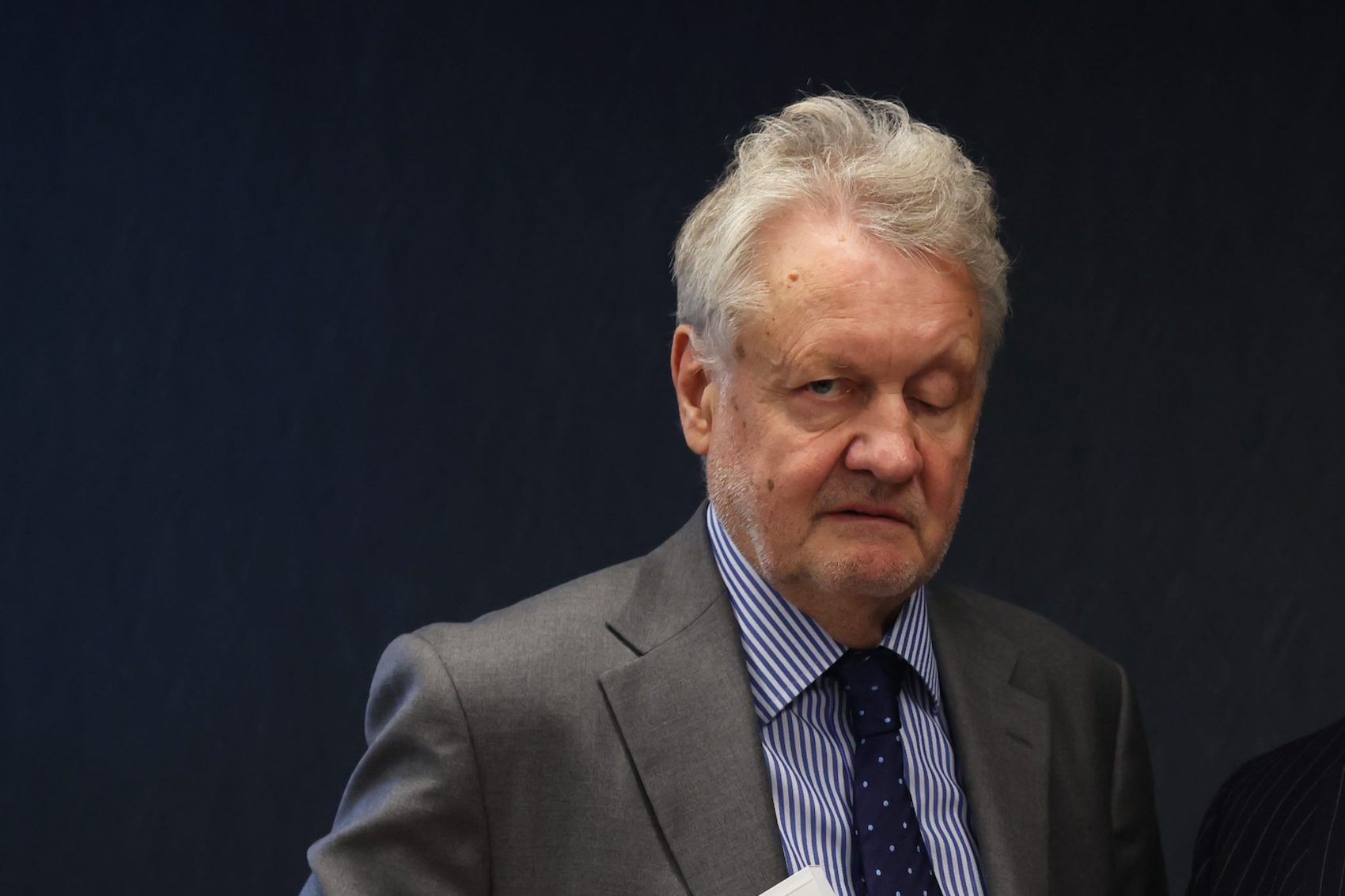


The Health Minister has hit back at critical comments about his department from a senior consultant – describing them as "difficult to accept" and claiming that the need for change is "already well recognised".
The Health Scrutiny Panel yesterday spoke to three former department officials about their time in Jersey with the aim of prising out any “lessons learnt” that could be used to improve the service.
First up was Professor Simon Mackenzie, who came to the island in January 2023 as the clinical lead in a five-person “change team” brought in after a report by Professor Hugo Mascie-Taylor found serious issues with governance at the Hospital.
During yesterday's hearing, Prof Mackenzie – who confirmed his resignation in May – slammed the island's Health service as being in need of “fundamental change”.
“If people don’t believe there is a problem to be fixed, then they won’t fix it,” he said.
Prof Mackenzie also criticised the standard of healthcare in Jersey as “generally lower than the standard I would expect to see in a similarly-sized hospital”.
“I have told both Health Ministers that, knowing what I know, if I were a Jersey resident I would choose to have my healthcare elsewhere,” he added.
In response, Health Minister Tom Binet said: “Professor Mackenzie's comments must be difficult to accept for the many people within the service who are doing a good job and those who are working tirelessly to bring about the numerous changes, the need for which is already well recognised.”
He added: “Whilst I am not a specialist in any area of medicine, I have used the hospital services myself in the past week and I have found them to be efficient, effective and delivered with courtesy.”
But the second hearing of the day covered many of the same points as Prof Mackenzie’s.
The Health Scrutiny Panel heard from Tom Hayhoe, who was appointed as the first substantive Chair of the Health Advisory Board in February.
He brought with him more than 35 years’ experience in health leadership, including time as Chair of West London NHS Trust and West Middlesex University Hospital NHS Trust.
But after only five weeks he stepped down from the role in "mutual agreement" with Health Minister Tom Binet due to "differences in working styles".
Yesterday, Mr Hayhoe described the culture in Health as "massively hierarchical" with "insufficient respect for the professions outside medicine, like nurses, pharmacists and therapists".
He described the island's health department as being "like a service that I would have been involved with in the 1980s, compared to what I expect with modern medicine".
Mr Hayhoe continued: “I also didn’t have a sense of any respect for the sorts of things which add up to good clinical governance, like attitudes to medical appraisal. I heard things about a degree of lip service being paid to those.
“From raw data, I also had a sense of a culture in which there was no appetite to report incidences, and the convention was cover-up, rather than saying something had gone wrong.
“The tendency is for people to pretend that it didn’t happen.”
Mr Hayhoe further raised concerns about how the advisory board had been set up and whether its current model and make-up had made it effective.
He added that it had created “severe confusion” over who was accountable to who and said that the board’s responsibilities and its structure needed “serious consideration” if it was renewed.
Mr Hayhoe also said that Jersey had to make “some difficult decisions about what things are done on and off island”.
Like Prof Mackenzie, he suggested that said that Jersey should develop a formal strategic relationship with a UK hospital for both clinical and governance support.
He explained: “In an ideal world, I would like to see clinical leaders and consultants in Jersey regularly spending a month on exchange with a clinician in another UK hospital, because it would help them to keep abreast of good practice.
“The only sensible way of doing it would be to partner with a single, well-run, large university institution in the UK.”
He further supported an “exchange” of consultants between Jersey and other institutions but added: “This relies on consultants themselves in Jersey being willing to engage with that process.
“There would be some who would be resistant to change on that sort of scale.”
He continued: “I did have a real sense of a challenge in terms of morale in the organisation, and it would be nice for it to feel that it was on a path towards success as opposed to caught up in a political quagmire.
“You’ve got a challenge on your hands.”
The Health Scrutiny Panel lastly heard Professor Hugo Mascie-Taylor – the author of a report which found serious issues with governance at the Hospital and raised major concerns over the management and working culture within the Health Department.
Prof Mascie-Taylor also served as the Interim Chair of the Health Advisory Board for just over a year.
Yesterday, the health expert said that there was “a clear lack of safety” in Jersey's service.

Pictured: Professor Hugo Mascie-Taylor raised concerns about “a clear lack of safety” in Jersey's health services.
Prof Mascie-Taylor said he had been concerned about safety when when he wrote his critical 2022 report on the health system.
But he admitted that, when he took over as Interim Chair, “a number of specifics began to emerge that demonstrated a clear lack of safety”.
Prof Mascie-Taylor said he discovered that the things exposing organisations to risk were “there in number” – including the number of lone practitioners, a lack of multi-disciplinary team working, the lack of clear lines of accountability, weak appraisal systems, a lack of openness and transparency and, among some, “a fierce rejection of guidelines”.
“That didn’t mean that it was definitely unsafe but it did mean that I couldn’t assure anyone that it was safe and I was deeply concerned that it might not be,” he said.
Prof Mascie-Taylor also echoed Prof Mackenzie's concerns about the issue of adopting appropriate clinical guidelines.
“I think Jersey should aspire to the highest standards of care not mediocrity,” he said.
Prof Mascie-Taylor endorsed the idea of a link with a major health centre outside the island both because this meant that patients with more “esoteric conditions” could receive specialist treatment but also because, using multi disciplinary teams, cases could be discussed by groups of clinicians not just by a single individual.
He said: “The benefits are potentially enormous in those two regards.
“Equally, I think if it’s going to carry on with the current lack of engagement with a major centre – which I’ve not seen anywhere else in the world that I can think of – then I think the risks are substantial.”
FOCUS: “You need to accept you have a problem”
Health chair leaves after a month over "differences" with Minister
IN-DEPTH: “How much evidence does Jersey’s health service want?” (August 2022)
Comments
Comments on this story express the views of the commentator only, not Bailiwick Publishing. We are unable to guarantee the accuracy of any of those comments.